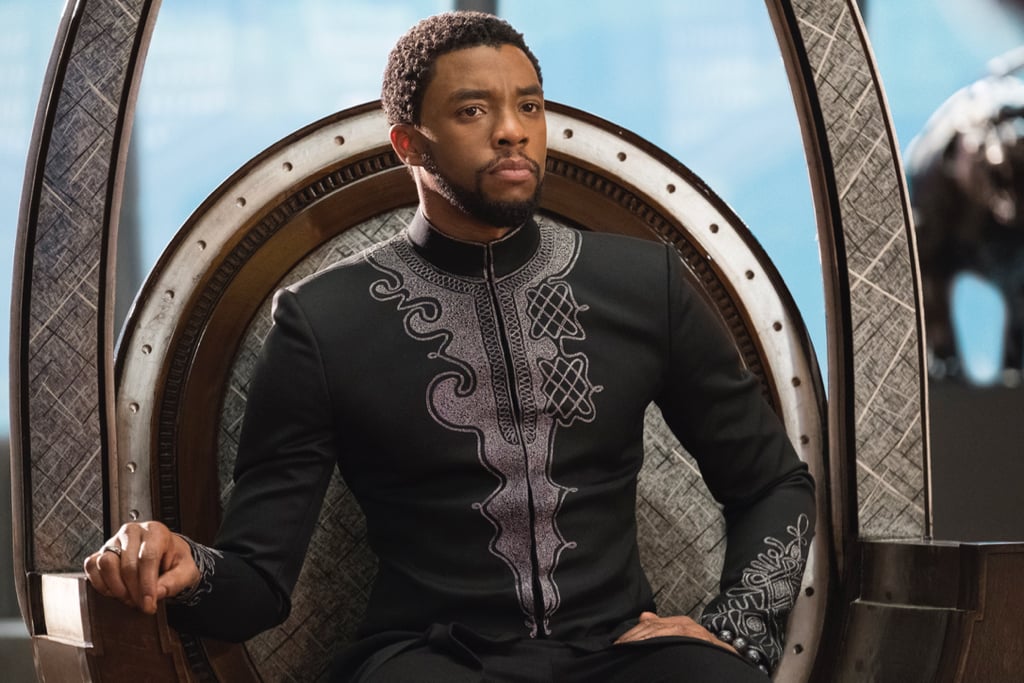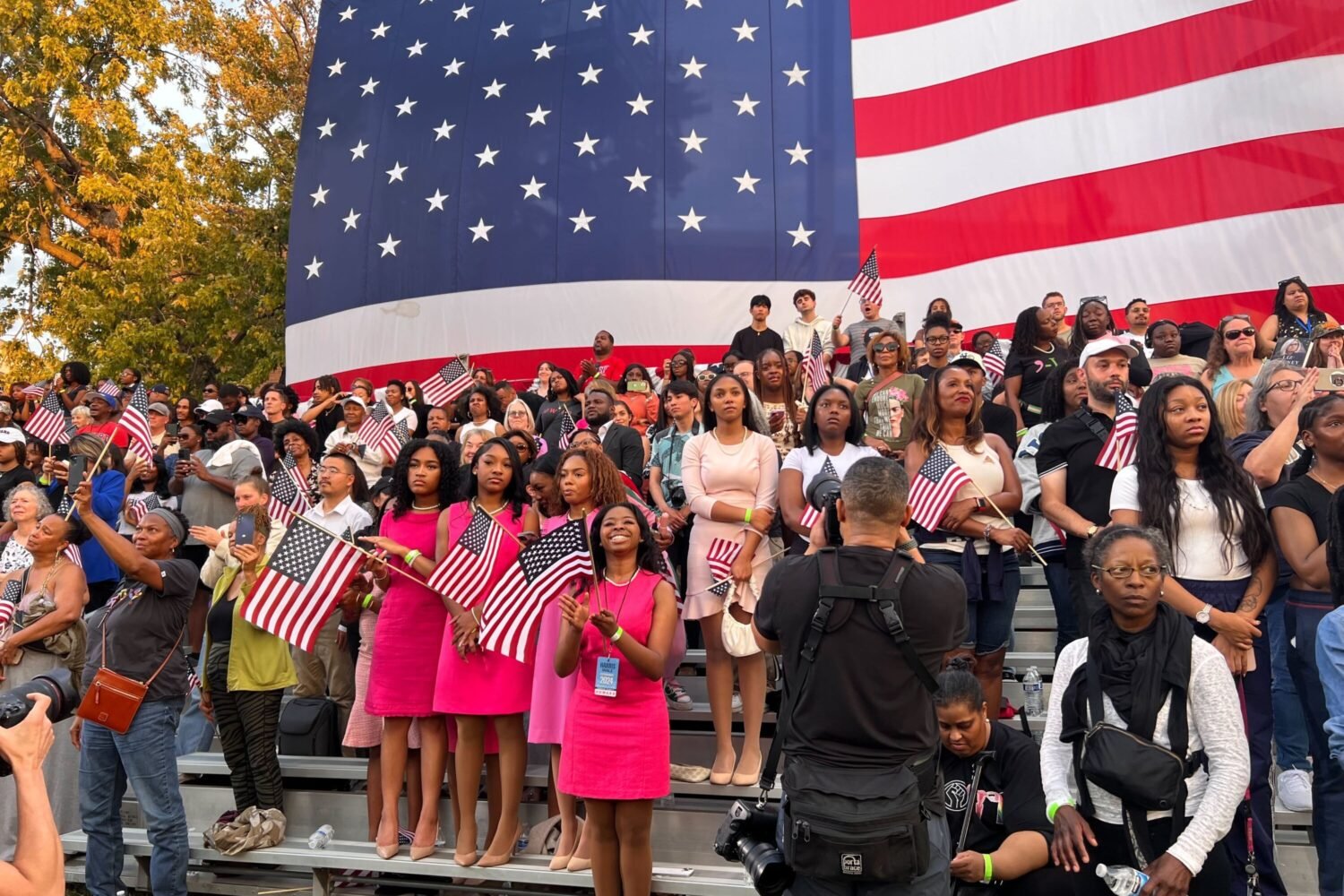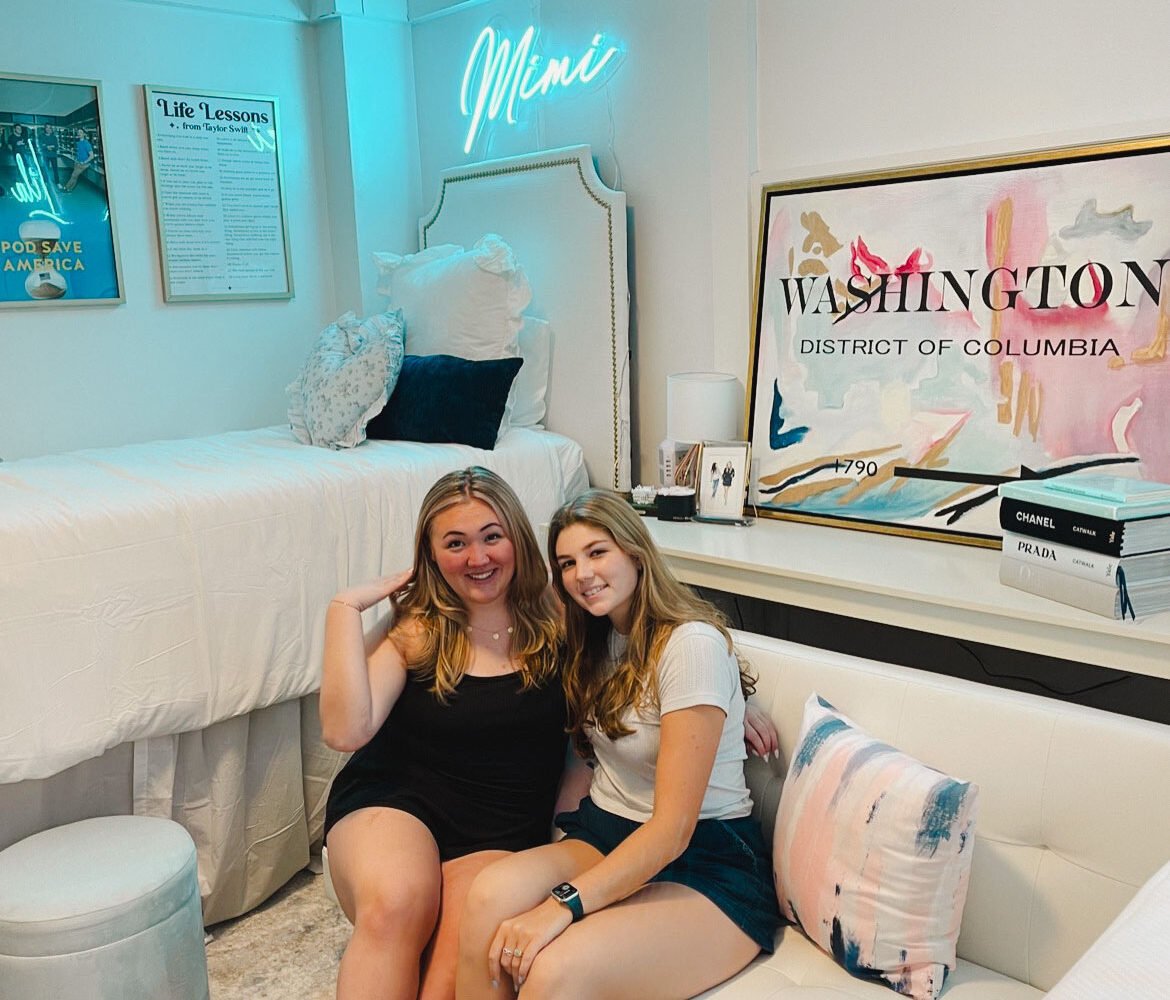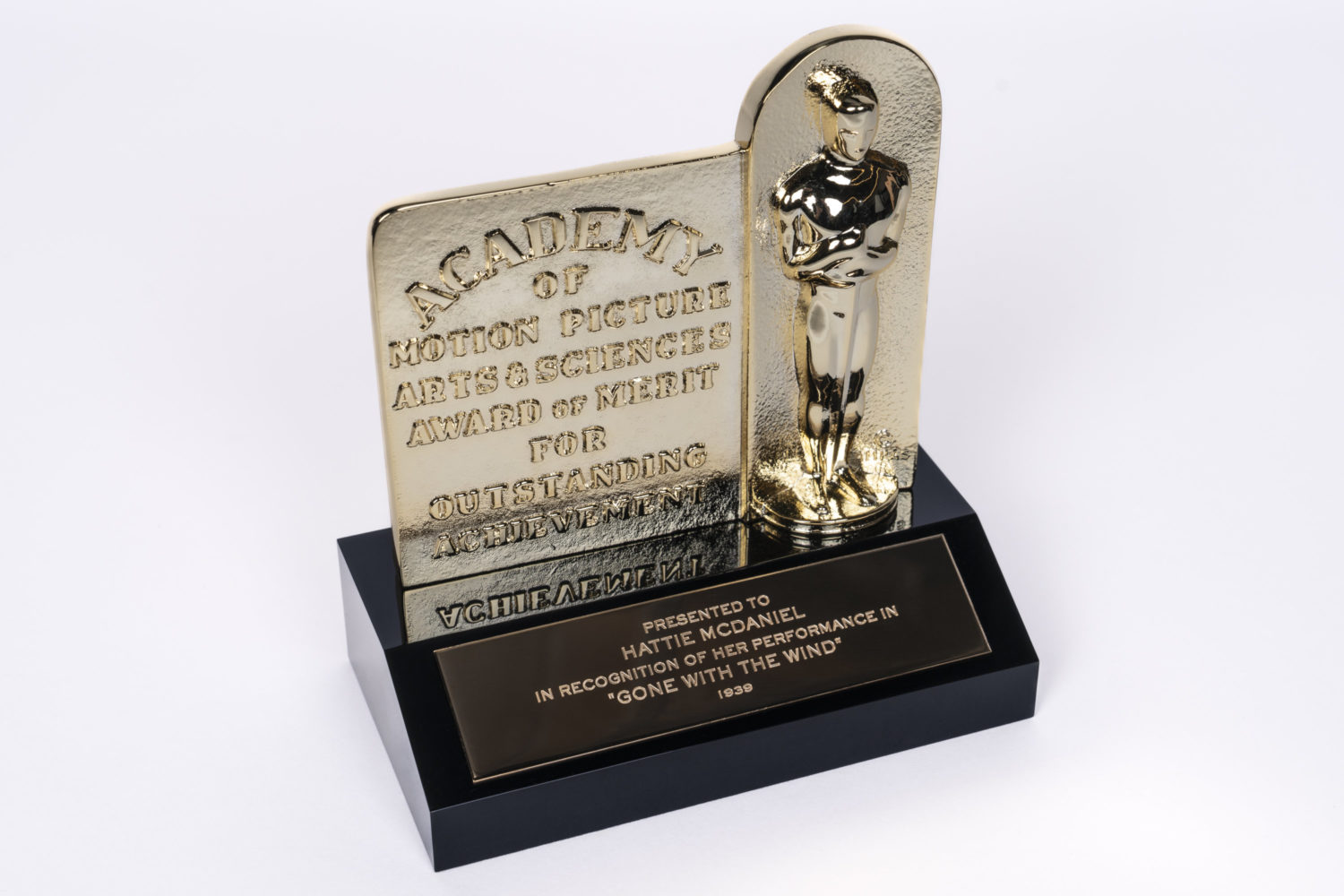The hype around Black Panther, the newest superhero spectacle from Marvel Studios, is inescapable. The movie, which opens this weekend, is projected to blow away previous box-office benchmarks for comic-book adaptations, comes with soundtrack full of new songs by Kendrick Lamar, and has film critics calling it the best of Marvel’s 18 movies to date.
But if there’s one place in Washington where the excitement’s most palpable, it might be the campus of Howard University, the country’s most prestigious historically black college—and, relevant to the movie’s opening, the alma mater of its star, Chadwick Boseman.
“I know a lot of students are excited for the movie because of great reviews, but also that [Boseman’s] a fellow Bison,” says Jade Agudosi, the president of the Howard University Student Association. “Pretty much the buzz on campus has been, ‘Who’s going? How are we going?’”
Black Panther would likely be a thrilling release for the Howard community had Marvel cast someone else in the title role. The fact that it is Boseman, though, has current students even more excited and those that knew him during his college days reflecting on their time working with him.
Boseman graduated in 2000 from the theater program in what was then Howard’s College of Fine Arts. (It was later merged into the College of Arts and Sciences.) As a student, he majored in directing and pursued an early career as a playwright and director at theaters in New York and Chicago. But his coursework at Howard also required him to take at least a year of acting classes.
“I found him to be talented, thoughtful, analytical,” says Vera Katz, who ran Howard’s directing program until 2001. “He wrote a play, which was quite good, and I was his advisor and I advocated that he put it on. Part of my grading was watching him at one rehearsal. He was a effective communicator. He used language well. So it was always clear to me that he was going to do something with directing and producing and acting.”
More specifically, Katz recalls, Boseman was committed to telling stories about African-American experiences. “He had no doubt that he was going to do something that was truth telling about his people,” she says. He got some early notices off-campus, too. Sonrising, a play about ethical complications from a pregnancy that Boseman wrote after his first year at Howard, was picked up at a 1996 theater festival in Dallas for aspiring black playwrights.
Boseman’s career as a big-screen actor didn’t really pick up until more than a decade after he graduated, but his best-known roles up to and including Black Panther ring true to Katz’s recollections of her former student. “What I see is that he’s using the technique that he learned in class,” says Katz, who now teaches at Duke Ellington School of the Arts. “Number one, he’s going to tell the stories of his people proudly and set the record straight. And number two, he’s going to analyze the script thoroughly and figure out what his character is driving for.”
That approach is especially relevant for Boseman’s best-known pre-Marvel roles in biopics about Jackie Robinson, James Brown, and Thurgood Marshall. But his knack for portraying real-life figures also goes back to Howard, particularly in a 1999 staged reading of Iola’s Letter, about the journalist Ida B. Wells. In it, Boseman played Thomas Moss, a Tennessee grocer whose 1892 murder at the hands of a white mob was an inspiration for Wells’s investigations of and crusade against lynching.
In the production, which Katz directed over two weekends in Howard’s Environmental Theatre Space, features Boseman playing Moss first as one of Wells’s friends, and later as a kind of spectral presence after the character’s death. While the show was nominally presented as a reading, there were enough costumes, props, and movement to give it a more lively feel for its audiences, an evolution its playwright, Michon Boston credits in large part to Boseman’s work.
“Chad—he was Chad then—has this thing,” Boston, now a consultant to documentary producers, tells me in a downtown DC coffee shop. “He doesn’t just act with his voice. His whole body language, he had an approach to the character that I didn’t know that made him real and translated him to current times.”
Iola’s Letter was staged less than a year after the June 1998 death of James Byrd, Jr., a 49-year-old black man who was murdered in Texas by three white supremacists who kidnapped, brutally assaulted, and dragged him from a speeding pick-up truck. Boston recalls Boseman’s performance as a lynching victim connected with the then-recent memory. “The character was so lovable, that in the play, and in Thomas Moss’s story, when he is murdered, the audience went into mourning,” she says.
Boston says that kind of commitment is visible in Boseman’s previous cinematic work, from learning to steal a base like Robinson for 42 to perfecting Brown’s hip-shaking swagger for Get on Up.
What connects those two roles, and Boseman’s turn in Marshall, is that they’re all portrayals of trailblazing black historical figures. T’Challa, the African king Boseman plays in the Marvel Cinematic Universe, is a fictional creation, but still every bit a barrier-breaker.
Boseman’s first appearance as T’Challa came in 2016’s Captain America: Civil War, but the character’s function was as one member of a faction led by Robert Downey, Jr.’s Iron Man. Black Panther’s solo outing is something completely different, which has fueled the enthusiasm of Boseman’s former academic collaborators and current students at his alma mater.
Black Panther having a black director, almost entirely black cast, a setting in an Afrofuturist wonderland untouched by colonialism, and a story enriched with themes that still manage to feel very real to African-American audiences. That’s a big shift for the MCU, a fantasy realm that, while consistently entertaining, has been populated primarily by muscly white dudes. For Howard students getting ready to see the movie, that’s huge. That it stars one of their own makes it even more special.
Agudosi says in the weeks and days leading up to Black Panther’s release, students have been making big plans to see it as quickly as possible and to celebrate its importance.
“We’re getting our gear together, going out with our outfits, our kente cloth, showing solidarity not only showing up to the movies, but also in terms of showing up because it’s a good representation of the diaspora and showing a different angle of what Africa looks like,” she says. “I think it’s really dope the movie centers on this whole different nation of Wakanda”—Black Panther’s home country, where the technological achievements blow away Tony Stark’s most-bleeding-edge laboratories—”it isn’t technically real, but it highlights the beauty and intelligence and all that is Africa. For us who are black students going to an HBCU, going to seeing a movie like that, to have one of our alums starring in the movie, I mean, there’s no better opportunity or cause to support.”
In fact, Black Panther has become a cause in its own right on Howard’s campus. A group of students are working on a #BlackPantherChallenge, part of a series of GoFundMe campaigns aimed at raising money to buy tickets so African-American kids can see the movie on a big screen.
“Representation, especially on the big screen, especially within the Marvel universe is something we cannot miss,” says Chris Williamson, a Howard freshman who’s been reading Black Panther comics since childhood. “We’re just doing what we can to make sure these kids see a superhero that looks like them and talks like them, walks like them, it’s something we couldn’t even dream of, and now it’s right in front of our faces.”
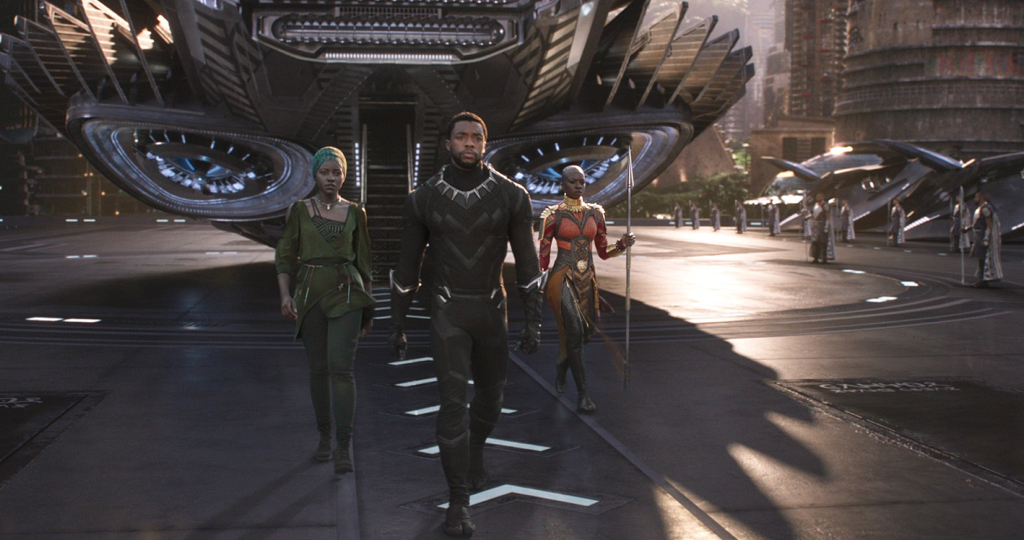
Williamson and sophomore Tyler Hicks-Nelson are working on their campaign with King Griffin, a 2012 Howard graduate and founder of Last Bison Standing, a Howard-branded apparel line. Griffin put out a call to Howard graduates working in education, and heard back from 145 around the country interested in taking their students to Black Panther in cities including DC, Atlanta, and Houston, he says. As of this writing, they’ve raised nearly $12,000 of their goal of $18,670, a reference to Howard’s 1867 founding.
Howard’s connections to Black Panther run beyond Boseman. The journalist Ta-Nehisi Coates, another former student whose time at Howard overlapped with Boseman’s, is currently writing a series of Black Panther comics. The movie’s director and co-screenwriter, Ryan Coogler, has cited Coates’s stories as inspiration for his script. (Williamson boasts that Boseman signed his copy of one of Coates’s books when the actor visited campus last fall for a screening of Marshall.) Howard also exists canonically inside the Marvel Cinematic Universe—in Captain America: The First Avenger, a member of a World War II commando unit played by Derek Luke mentions having attended the school.
Boseman was unavailable to comment for this article, though in a a 2016 interview with Time, before Captain America: Civil War, he noted he first encountered the comic-book hero he’d come to play while he was at Howard. And he told the Associated Press this week that the university was kind of like the kingdom his character rules.
“It is a Wakanda to a certain degree,” Boseman told the AP. “There is definitely a lot of T’Challa there. If you have a blanketed idea of what it means to be of African descent and you go to Howard University, you’re meeting people from all over the diaspora—from the Caribbean, any country in Africa, in Europe. So you’re seeing people from all walks of life that look like you but they sound different.”
The theme of prosperous, but insular, Wakanda learning to look outward runs throughout Black Panther; so does the idea that that nation can be a model for achievement and excellence, something that’s lacked in Hollywood’s previous attempts to offer black superheroes.
Current Howard students may have been too young for Blade, a dark, violent trilogy starring Wesley Snipes as a vampire hunter in a criminal underworld, or underwhelmed by attempts at satire.
“We didn’t get to see black superheroes as little kids,” Hicks-Nelson says. “The Wayans brothers had Blankman, there was Meteor Man. But they were all spoofs. They were never taken seriously and they were always dealing with the ghetto and the hood. What you’re going to see in this movie is that we are strong, we are heroes, we are resourceful. And that’s what Howard teaches us.”
About 70 #BlackPantherChallenge campaigns have popped up since the first one was launched by Frederick Joseph, a New York marketing consultant who raised more than $40,000 to buy tickets for kids at the Boys & Girls Club in Harlem. All together, they’ve raised more than $400,000, making it one of GoFundMe’s most successful fundraising projects to date, the site says.
For as much as Black Panther dwells in fictional Wakanda, it remains connected to the real world with scenes featuring young kids not very different than the ones who will wind up benefitting from the #BlackPantherChallenge fundraisers. That’s not lost on the Howard students running one of their own.
“I was just amazed by how they were able to maintain the integrity of Black Panther’s actual blackness,” Hicks-Nelson says. “I fell in love with the idea of the Black Panther being on the big screen, because it was going to show black people being in a position of power. And as soon as [I heard] the idea of being able to send little black kids around the country to see this on the screen, I said we have to do this. Seeing that the star was a Howard alum, it’d make no sense if the Howard community wasn’t standing behind him, because it’s our duty, in truth and service. It’s what we do.”

